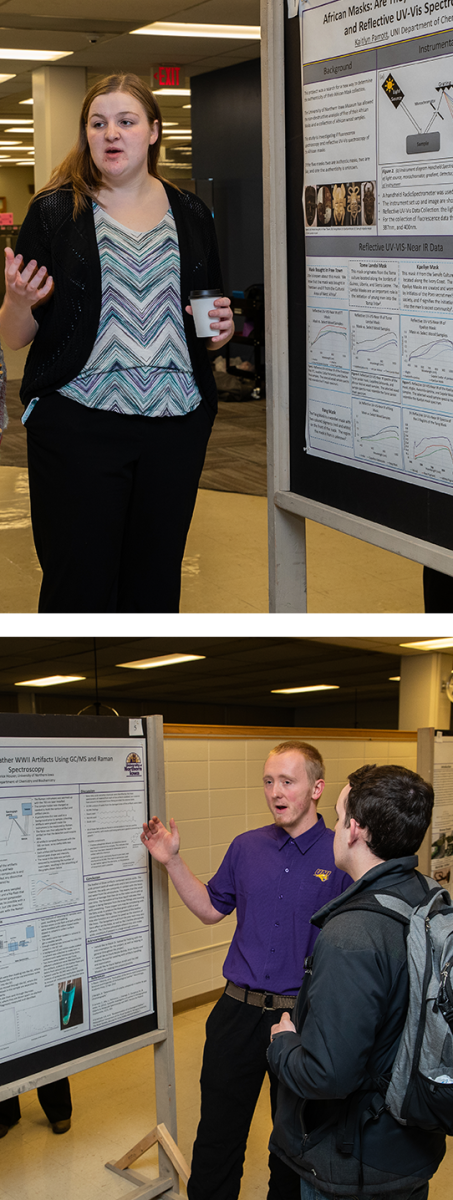Summer Undergraduate Research
Summer Undergraduate Research
Summer research opportunities are only open to current UNI students. The stipend for the program will be at least $4000 for a ten-week period, from May 26 to July 31, 2026. The student will be expected to treat the research experience as a full-time commitment during the ten-week period.
The student will make oral presentations for their peers and faculty during the course of the 10-week project. At the completion of the program, the student will write a formal research paper on their summer project and will do a poster presentation in conjunction with other CHAS students involved in summer research.
Want to get involved?
To get involved in research, browse the faculty research descriptions to find a faculty member whose research interests you. Then, make appointments to meet with the faculty whose research you'd like to join. This is an important step, since it will help the faculty member determine if you are a good fit for their research program. After that, fill out the online application form indicating your top two preferred faculty mentors.
Martin Chin
Areas of Interest: Inorganic, Organometallic chemistry. We are investigating the reactivity of diruthenium complexes for the activation of small molecules such as dihydrogen, methane and dinitrogen. The primary instrument that will be used is the NMR spectrometer. The researcher will learn how to synthesize air-sensitive complexes and explore the reactivity of the resulting complexes.
Daniel Lee
Areas of Interest: The Lee lab is a synthetic organic chemistry group interested in developing new photochemical methodologies and synthesizing biologically relevant small molecules. Our research program focuses on advancing the efficiency, effectiveness, and sustainability of chemical synthesis. The current research interest includes designing novel molecules possessing tunable electronic and physical properties that find applications in bioorthogonal and materials chemistry research.
Justin Peters
Areas of Interest: Biochemistry. Studying subsurface microbial communities within Wind Cave National Park. Using atomic force microscopy to examine protein-mediated DNA looping in the context of supercoiled DNA plasmids. Elucidating the role of electrostatic charge and shape in determining the electrophoretic mobility of DNA.
Joshua Sebree
Areas of Interest: Experimental and field studies relating to the early Earth, particular interest is the chemistry of conditions that will lead to the formation and sustaining of life.
Colin Weeks
Areas of Interest: Inorganic chemistry, materials chemistry. There are two areas of research in
my lab that have opportunities for summer students.
1) A project that involves a combination of materials chemistry and analytical chemistry. This
project has potential commercial applications and we have applied for a patent on our
discoveries. The full details can only be disclosed to students who end up being involved on the
project, but if you are interested in it, I can tell you some general information about it.
2) Preparing nano-scale cellulose fibers and evaluating the properties of the fibers and mixtures
made with the fibers. Materials with nanometer scale dimensions often have chemical and
physical properties that differ in important ways from the bulk scale material. This research is a
part of a large collaborative project with multiple research groups at the University of Iowa and
Iowa State University. As well as preparing nanocellulose, student researchers will utilize
characterization methods such as rotational viscometry and electron microscopy.
Complete this application form by 5:00 PM Monday, February 23, 2026. Those selected will be notified before spring break.

